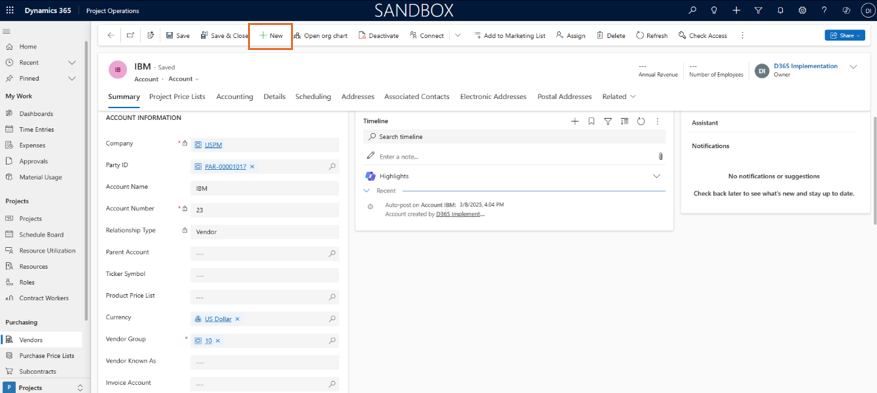Understanding Dynamics 365 Project Operations Deployment Types
- sribatsapatra1
- Feb 7, 2024
- 2 min read
Updated: Dec 11, 2024
Dynamics 365 Project Operations offers a range of deployment types to accommodate the diverse needs of organizations across industries and sizes. Whether you're a small business looking for basic project management capabilities or a large enterprise requiring comprehensive project, resource, and financial management functionalities, there's a deployment option tailored to meet your specific requirements. By understanding the nuances of each deployment type—Project Ops Lite, Project Operations Resource Non-Stocked, and Project Operations Production Stocked—organizations can make informed decisions and leverage Dynamics 365 Project Operations to drive efficiency, collaboration, and success in their projects. Microsoft's Deployment questionnaire assists in identifying the most suitable deployment type for you. The questionnaire results will direct you towards one of the following deployment types:
Lite deployment – deal to proforma invoicing (Purely on Dataverse) This approach is ideal for service organizations seeking to enhance project visibility and efficiency without disrupting existing ERP systems. By leveraging Dynamics 365 Project Operations alongside their current ERP solution, organizations can optimize project lifecycles, improve financial management, and deliver exceptional customer experiences. Below are the key capabilities -
Sales process for projects that extends Dynamics 365 Sales application experiences
Project planning using Microsoft Project for the Web
Multi-dimensional pricing
Unified resource management
Time tracking
Basic expense
Material usage
Project Budgeting and Time-Phased forecasting
Subcontracting
Proforma invoicing for Project manager's review and edits
Project Operations for resource/non-stocked scenarios (Combination of Dataverse and D365 F&O) This approach offers modern end-to-end project management capabilities tailored for service organizations such as IT/ITeS, Professional Services, and Legal sectors. Ideal for revenue derived from project-based services, this solution focuses on optimizing project lifecycles without the need for inventory management. With streamlined processes from project initiation to invoicing, organizations can enhance efficiency, resource allocation, and financial management. Below are the key capabilities -
Sales process for projects that extends the Dynamics 365 Sales application
Project planning using Microsoft Project for the Web
Multi-dimensional pricing
Unified resource management
Time tracking
Basic expense
Full expense with Receipt OCR
Material usage
Project Budgeting and Time-Phased forecasting
Subcontracting
Proforma and customer-facing invoicing
Revenue recognition for projects
Project Operations for stocked/production order scenarios (Purely D365 F&O) This approach offers seamless integration of end-to-end project management and accounting functionalities, tailored for industries such as architecture, engineering, construction (AEC), and project-based manufacturing. This comprehensive solution caters to project-centric organizations, including construction firms and engineer-to-order (ETO) companies involved in activities like machine building and interior designing. By consolidating project management and accounting processes, Dynamics 365 Project Operations enhances resource allocation, project cost tracking, and inventory management, ensuring efficient project execution and financial management. Below are the key capabilities -
Project planning using WBS
Resource management
Time tracking
Full expense
Receipt OCR
Full invoicing
Revenue recognition
Production orders
Stocked materials support with inventory
Let's deep dive into core functionalities of D365 with "Lead Management" Process - https://www.learningd365.blog/post/blog-2-lead-management-with-d365-project-operations




Comments